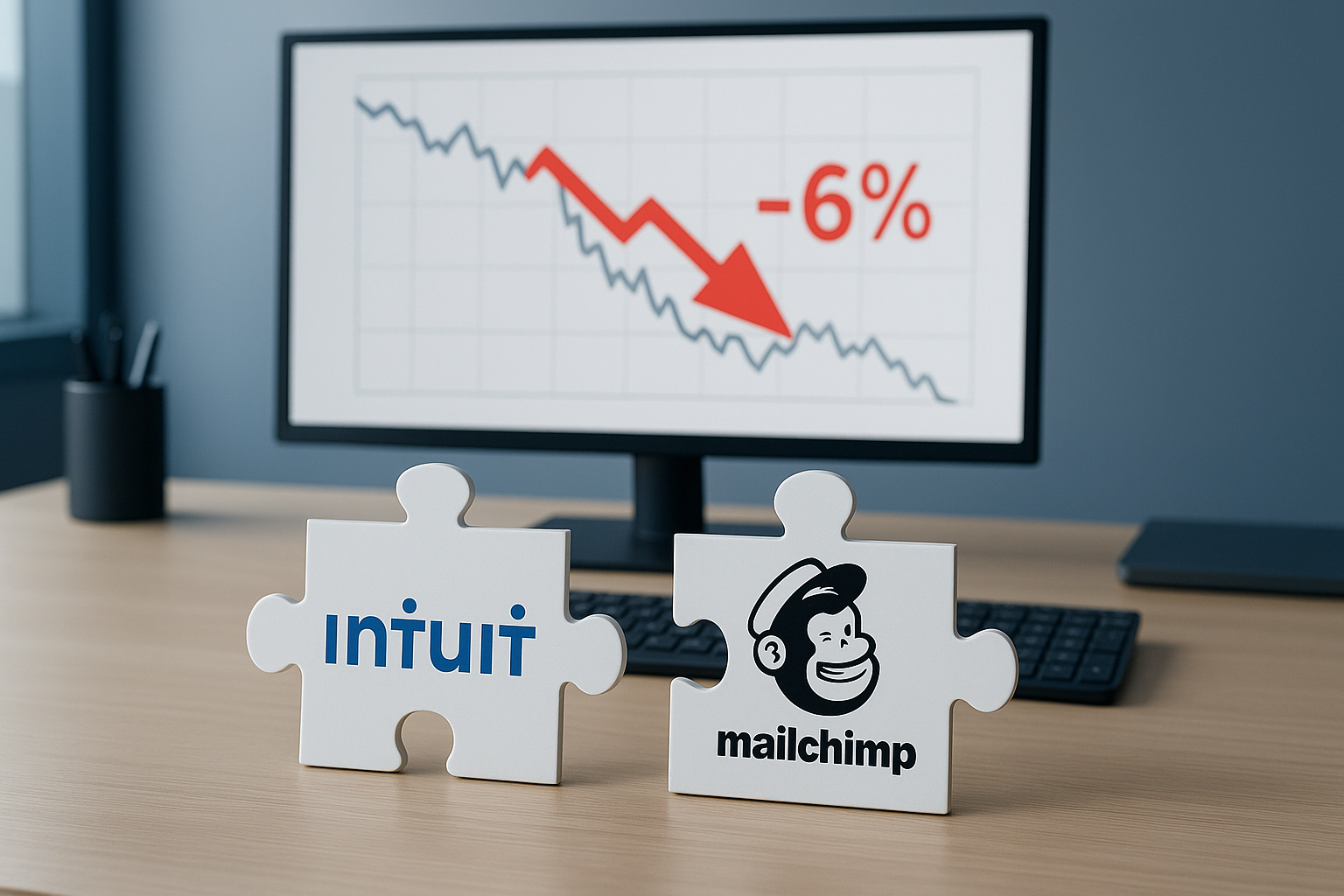Intuit shares took a nasty 6% tumble in after-hours trading yesterday—the kind of drop that makes executives reach for the antacid—following first-quarter results that left Wall Street analysts checking their spreadsheets twice.
The culprit? Mailchimp, the email marketing platform that Intuit scooped up back in 2021 for a whopping $12 billion, failed to deliver the goods.
Look, it wasn't a disaster by any stretch. The company still posted growth, just not the precisely forecasted 16.1% that analysts had been counting on. It's that classic corporate scenario where "good" simply isn't "good enough" when expectations are sky-high.
I've tracked Intuit for years, and this feels like a classic case of integration indigestion. When you swallow a $12 billion company, there's bound to be some heartburn along the way.
In what seems like an attempt to soften the blow (or perhaps a carefully planned move that just happened to coincide with disappointing results?), Intuit announced a $3.2 billion share buyback program. Nothing says "we still believe in ourselves" quite like using the corporate credit card to buy back your own stock.
The Mailchimp acquisition always represented a bold bet. The logic seemed sound enough—Intuit's QuickBooks customers need marketing tools, Mailchimp users need financial software. A match made in digital heaven! But as anyone who's lived through a corporate marriage knows, the honeymoon phase eventually ends.
What we're witnessing is probably that awkward middle period of integration. Cultural clashes. Tech systems that don't play nice together. Teams still figuring out how to collaborate effectively.
"We remain confident in our Mailchimp strategy," Intuit CEO Sasan Goodarzi insisted during the earnings call, though his voice lacked the enthusiasm I noticed during previous quarters.
Is a 6% stock drop an overreaction? Probably.
The company's core business—tax preparation and financial software—continues to chug along reliably. These are the definition of sticky products. Nobody switches tax software for fun, trust me.
That buyback announcement, though... it raises questions. Sure, it signals confidence, but couldn't $3.2 billion potentially do more if invested in product development or smaller, easier-to-digest acquisitions? Then again, I'm not the one with a Harvard MBA making these decisions.
There's something darkly humorous about a company that helps others manage their finances facing scrutiny over its own financial decisions. The irony isn't lost on industry observers I spoke with yesterday.
For investors with a longer time horizon, this likely represents a speed bump rather than a roadblock. Intuit still dominates its core markets with products that generate recurring revenue—the holy grail in software.
The Mailchimp integration will eventually sort itself out. These things always do. Just rarely on the timeline presented in those glossy acquisition presentations with their perfect hockey-stick growth projections.
Meanwhile, Intuit executives are undoubtedly crafting carefully worded internal communications about "accelerating synergies" and "optimizing cross-platform opportunities"... and sending them through Mailchimp.
Sometimes corporate reality writes its own punchlines.
